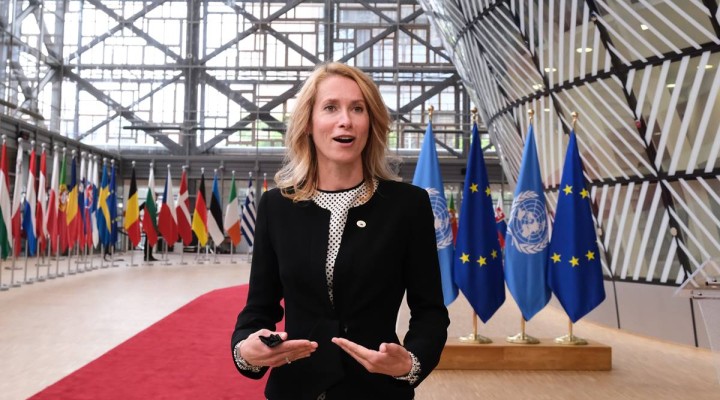“The time is not right for the re-establishment of such high-level communication, as Russia has not taken any steps to carry out the Minsk agreements and is continuing its infringement of international law. The initiation of communication on a high political level without any changes in Russia’s current aggressive behaviour would send a wrong signal to our society as well as our Eastern Partnership states,” said Kallas and underlined that the unity of the EU is still of key importance when it comes to relations with Russia.
The EU leaders did not back the re-establishment of summits with Russia in the 27 + 1 format. The European Council will discuss the conditions and format for selective cooperation in the future.
The prime minister stressed that EU–Russia relations continue to be based on the five principles agreed by the EU after the illegal annexation of Crimea by Russia. She highlighted that adherence to the conditions of the Minsk agreements by Russia is one of the key conditions.
Kallas also emphasised that the European Council considered its Eastern partners when debating EU–Russia relations. “We expressed on Council level a strong positive stance towards the European aspirations of our Eastern partners. It is very important to us,” stressed the prime minister.
The European Council also called the European Commission and the High Representative of the Union for Foreign Affairs and Security Policy to present further restrictions, including economic sanctions, against Russia, should Russia continue its dividing and aggressive behaviour.
At yesterday’s foreign policy discussions, the EU heads of state and government also addressed relations with Turkey and discussed issues concerning Belarus, Libya, Ethiopia, Mali, and the external dimensions migration.
Yesterday’s discussions also included issues related to European core values as well as gender and sexual minority rights in the light or recent amendments to legislation regulating sexual education in Hungary, limiting the rights and freedom of speech of sexual minorities.
Currently, 17 EU heads of state and government, including Prime Minister Kaja Kallas, have signed an open letter addressing the rights of sexual minorities which was sent to the President of the European Council Charles Michel, President of the European Commission Ursula von der Leyen, and the representative of the Council presidency, Prime Minister of Portugal António Costa as a consolidated appeal on 24 June. The heads of state emphasised that hatred, intolerance, and discrimination must have no place in Europe.
Photos: https://www.flickr.com/photos/stenbockimaja/albums/72157719455432881
